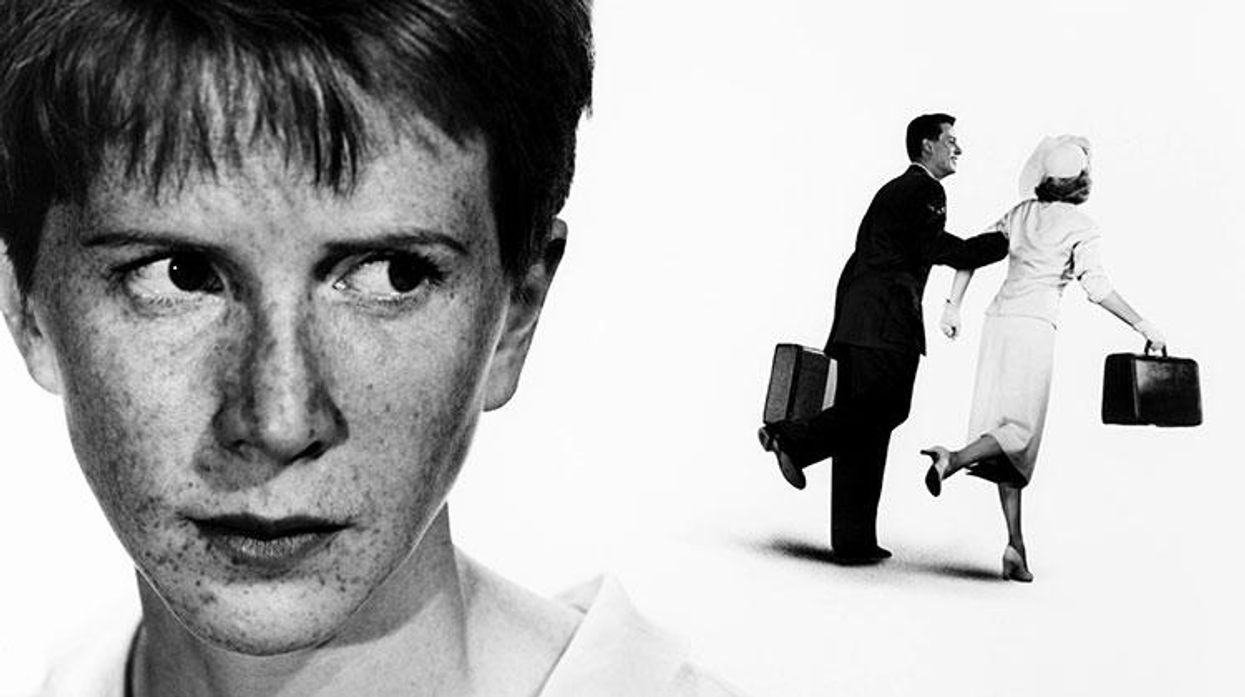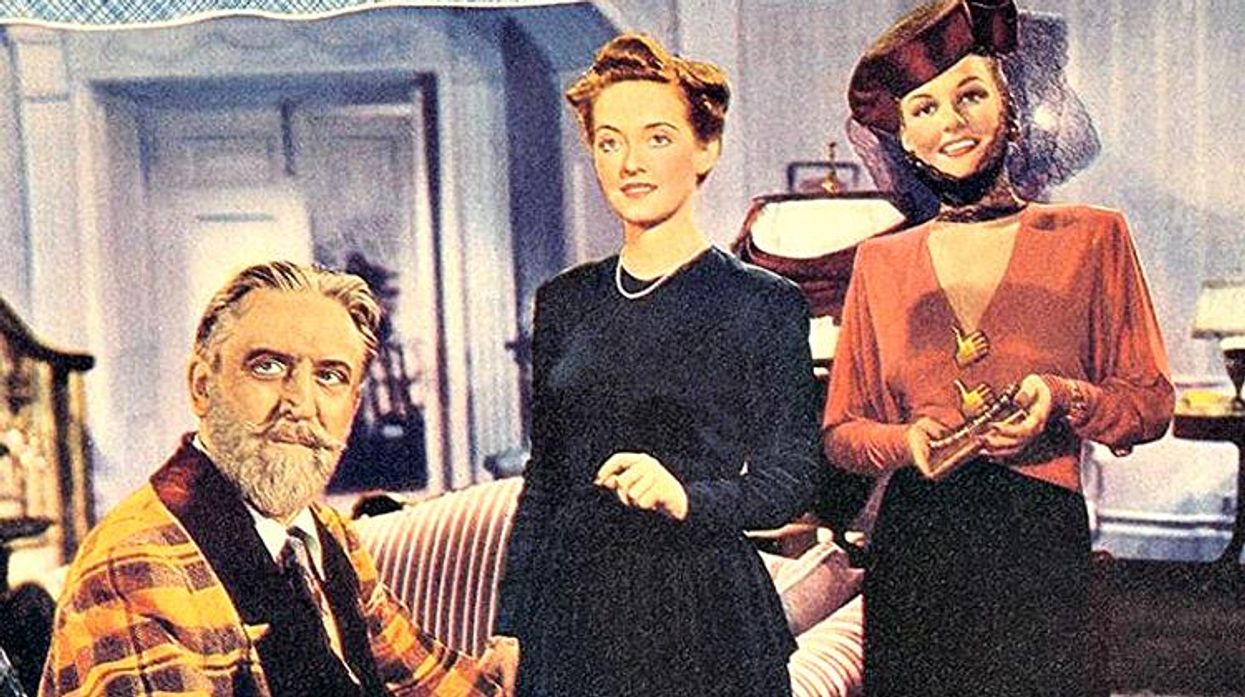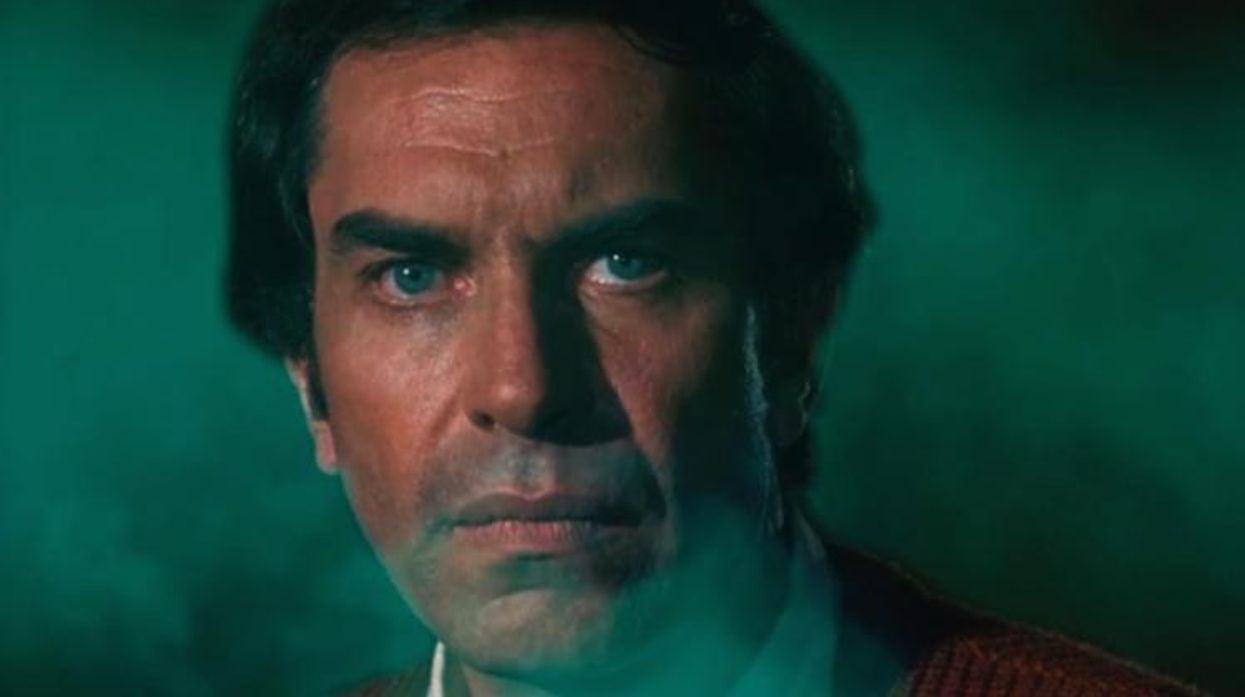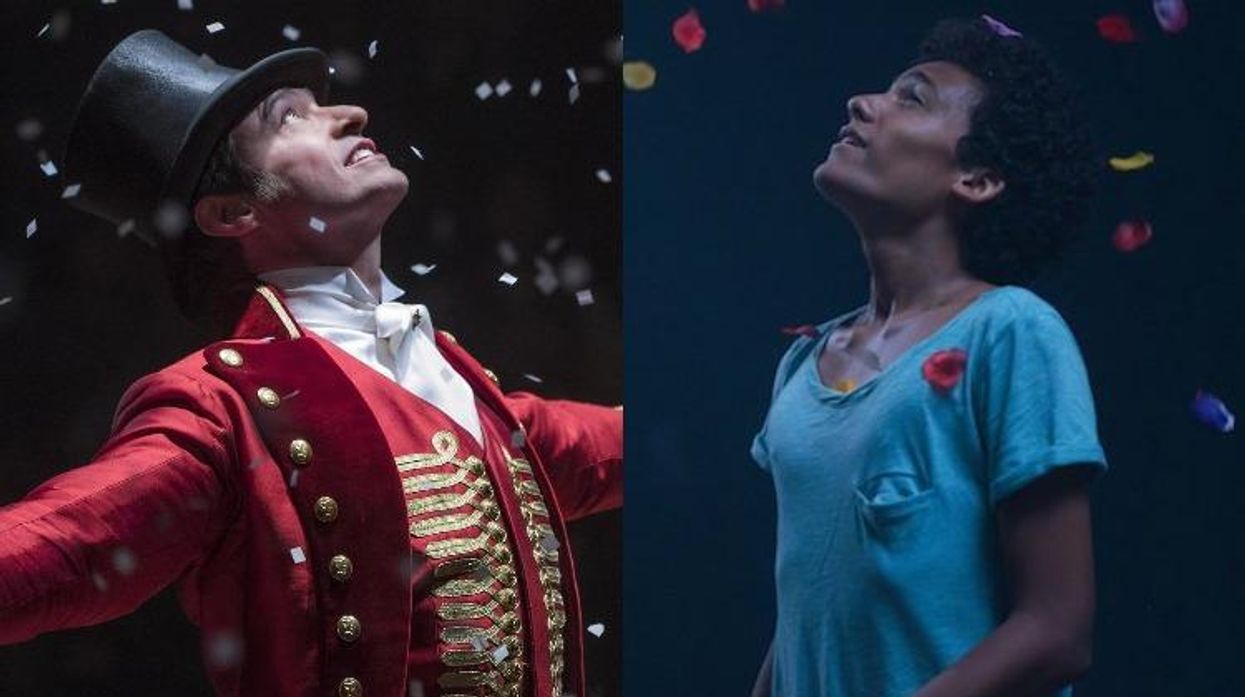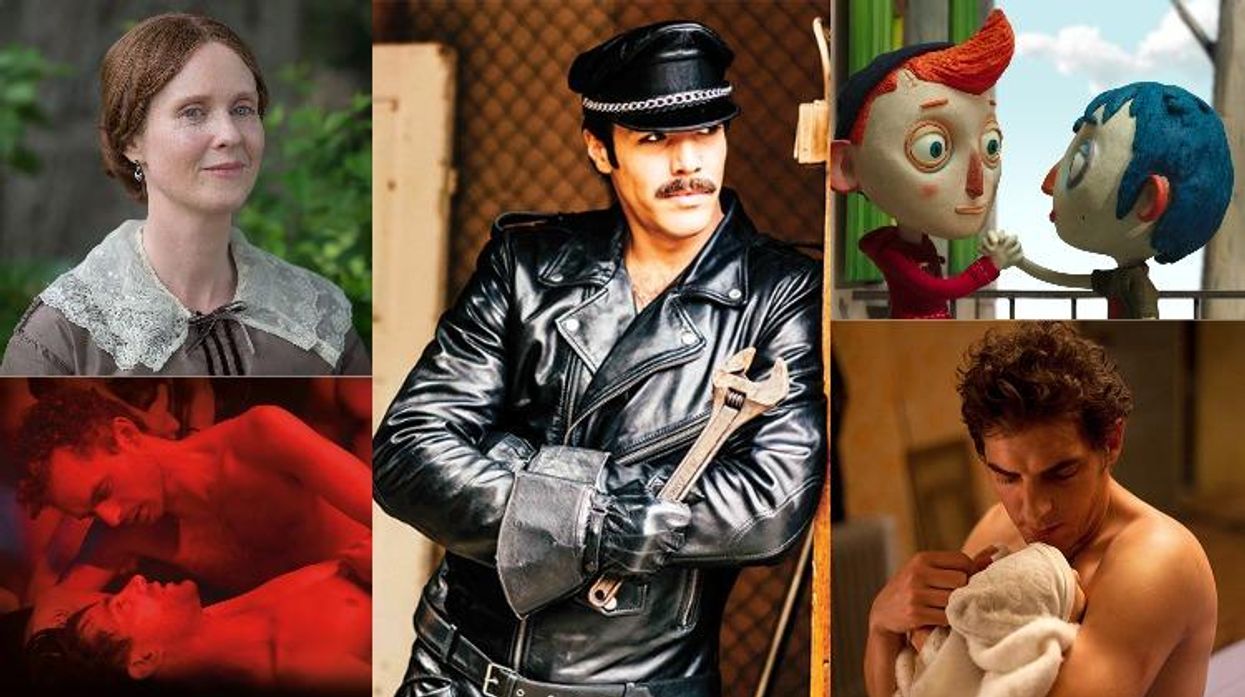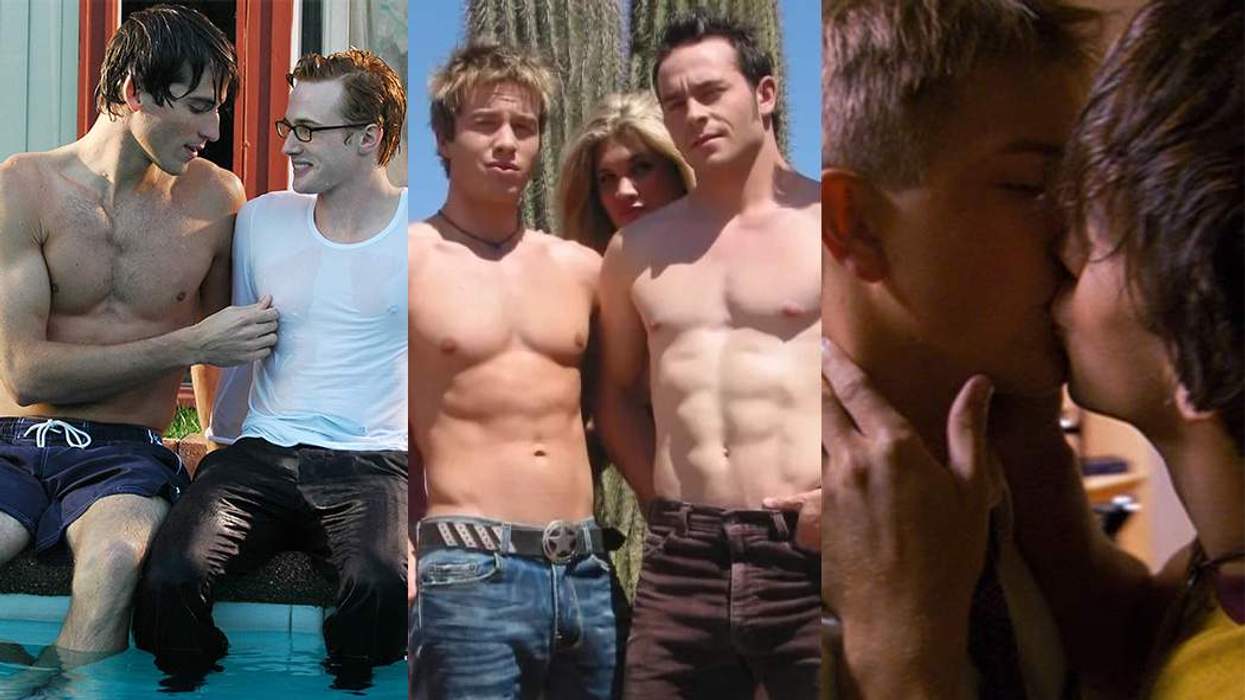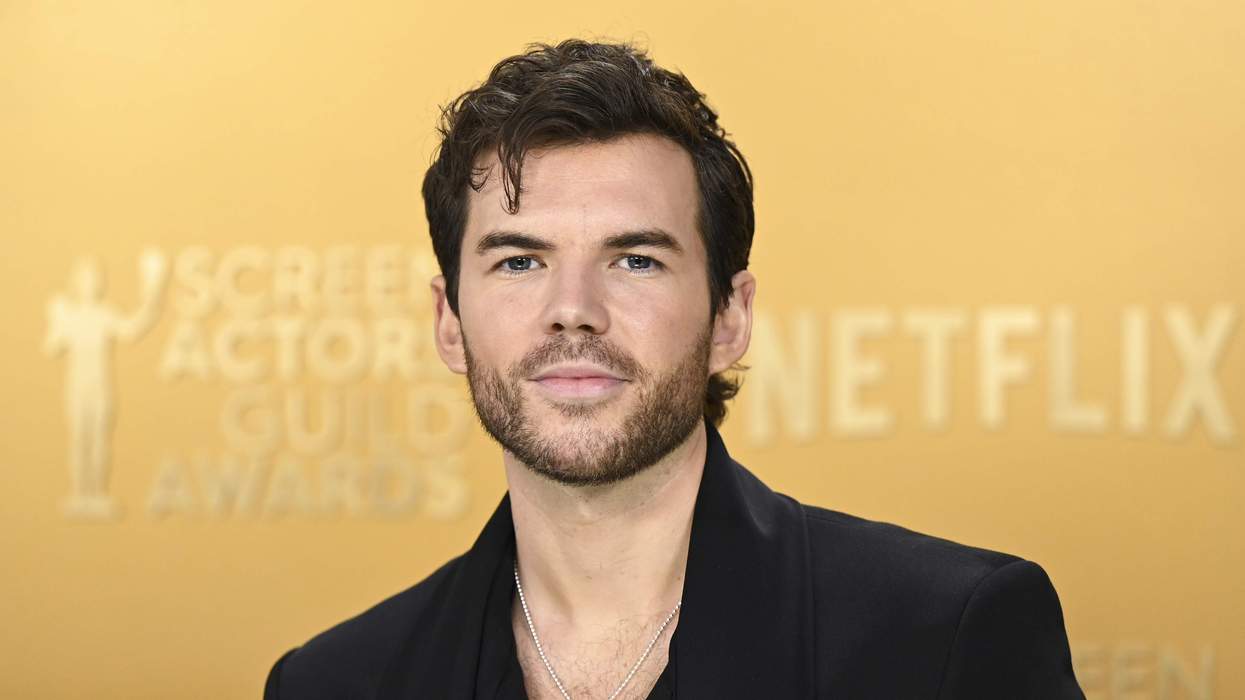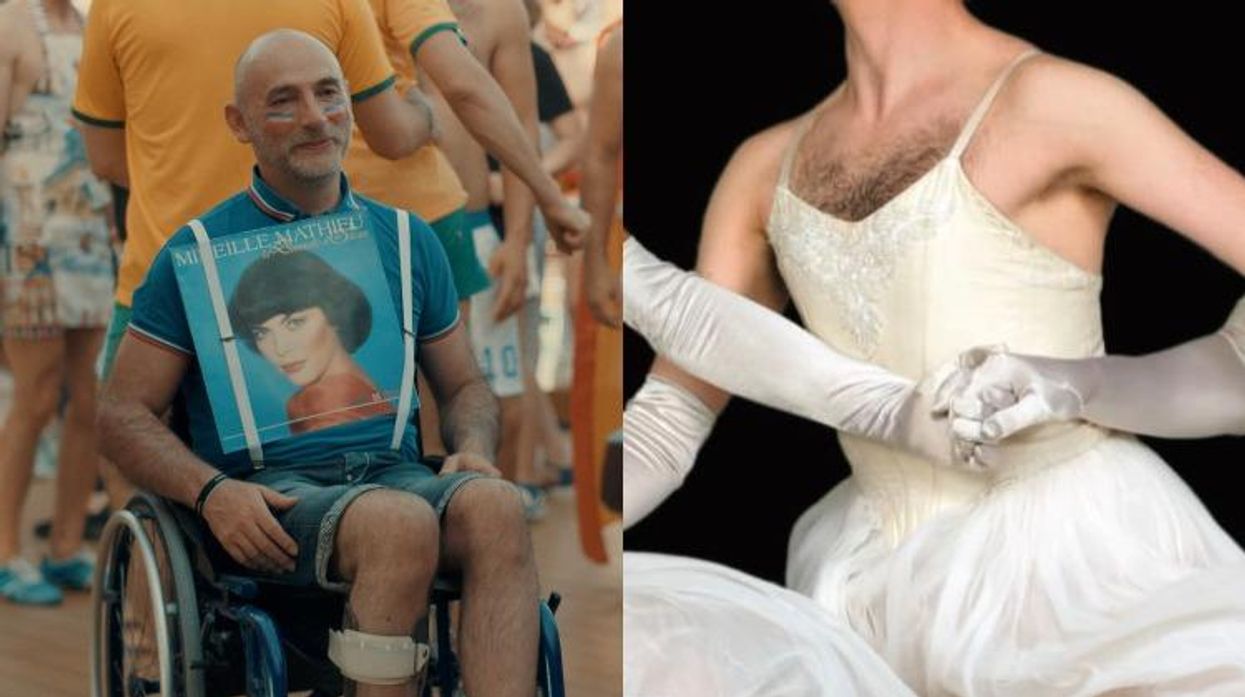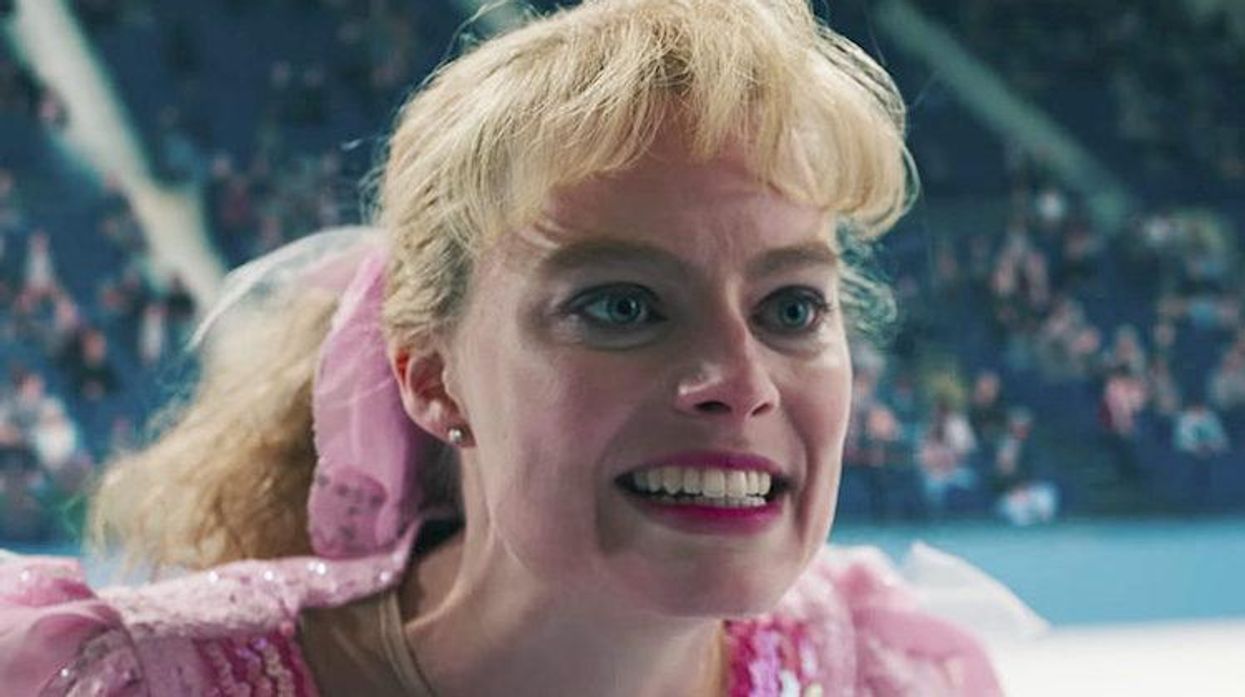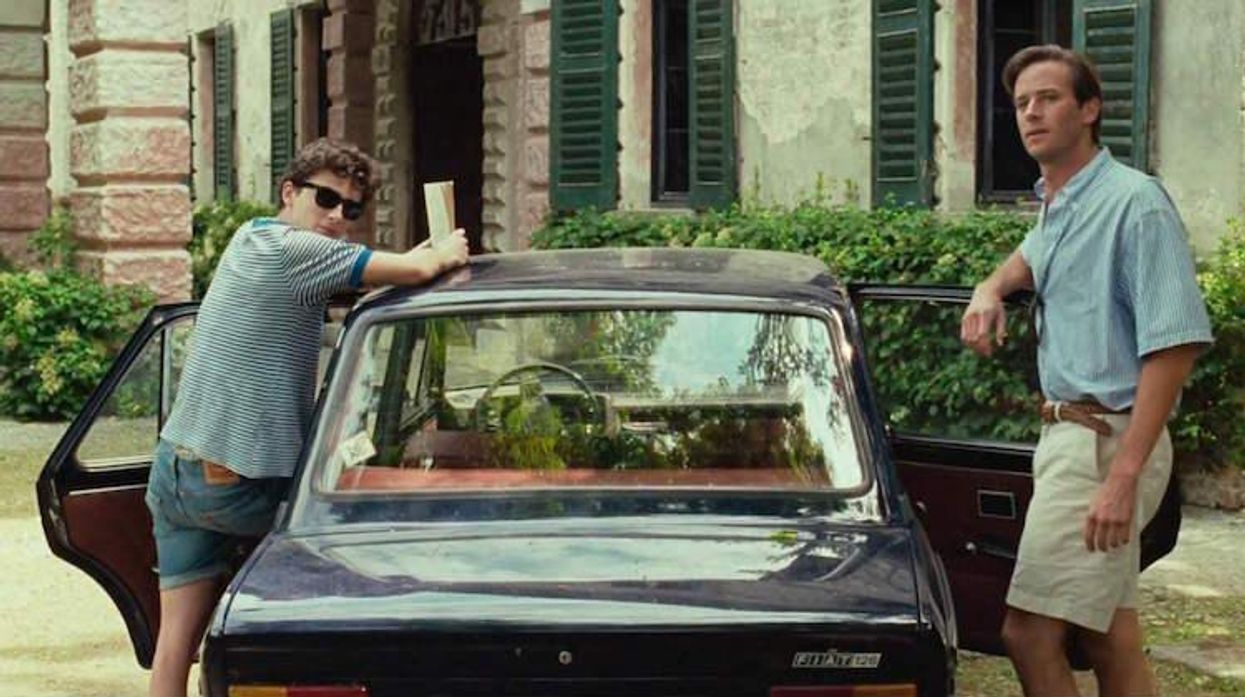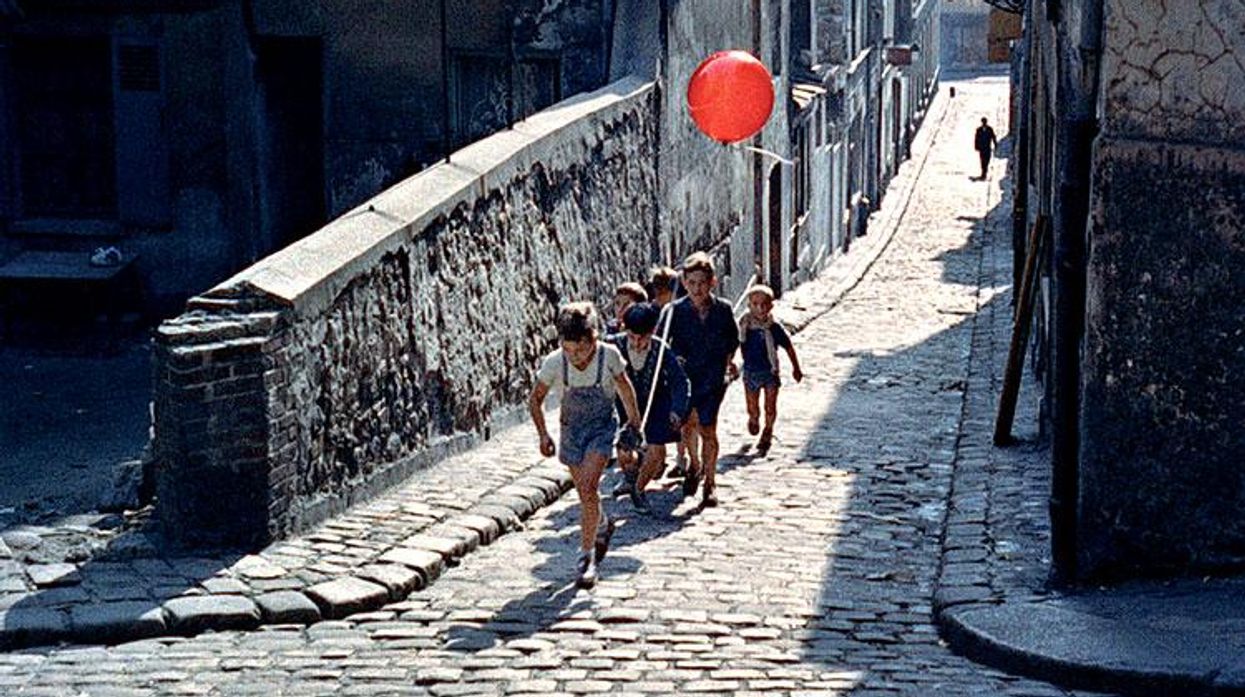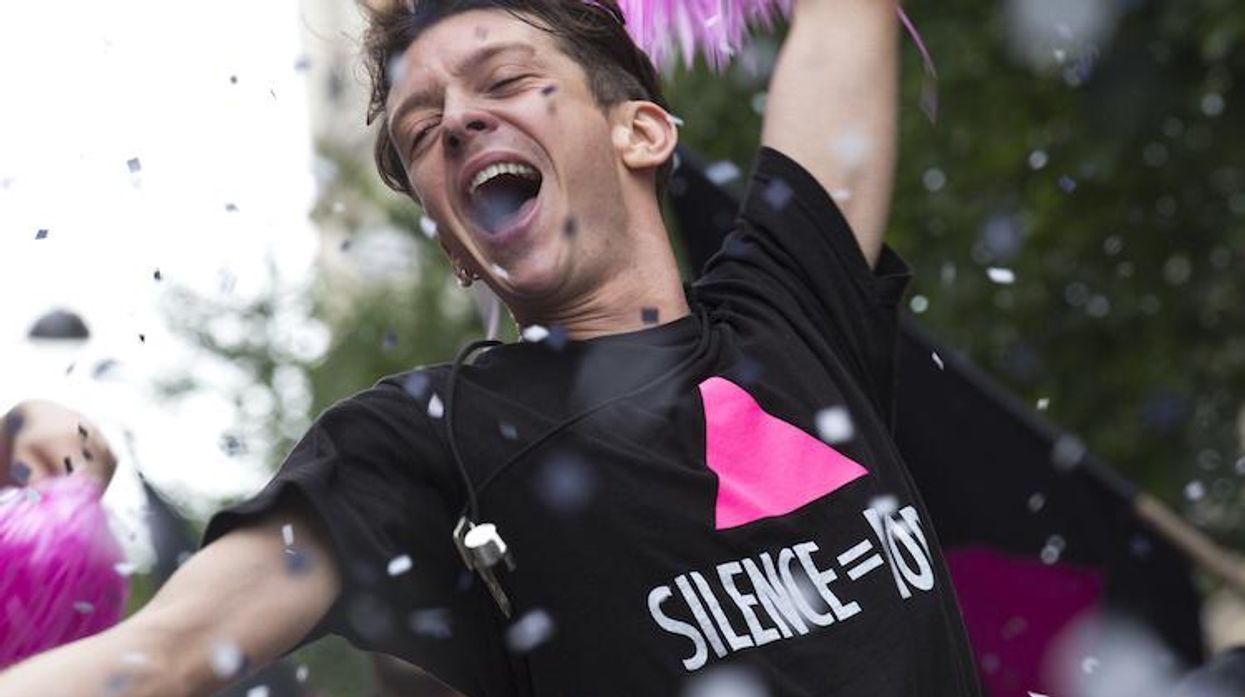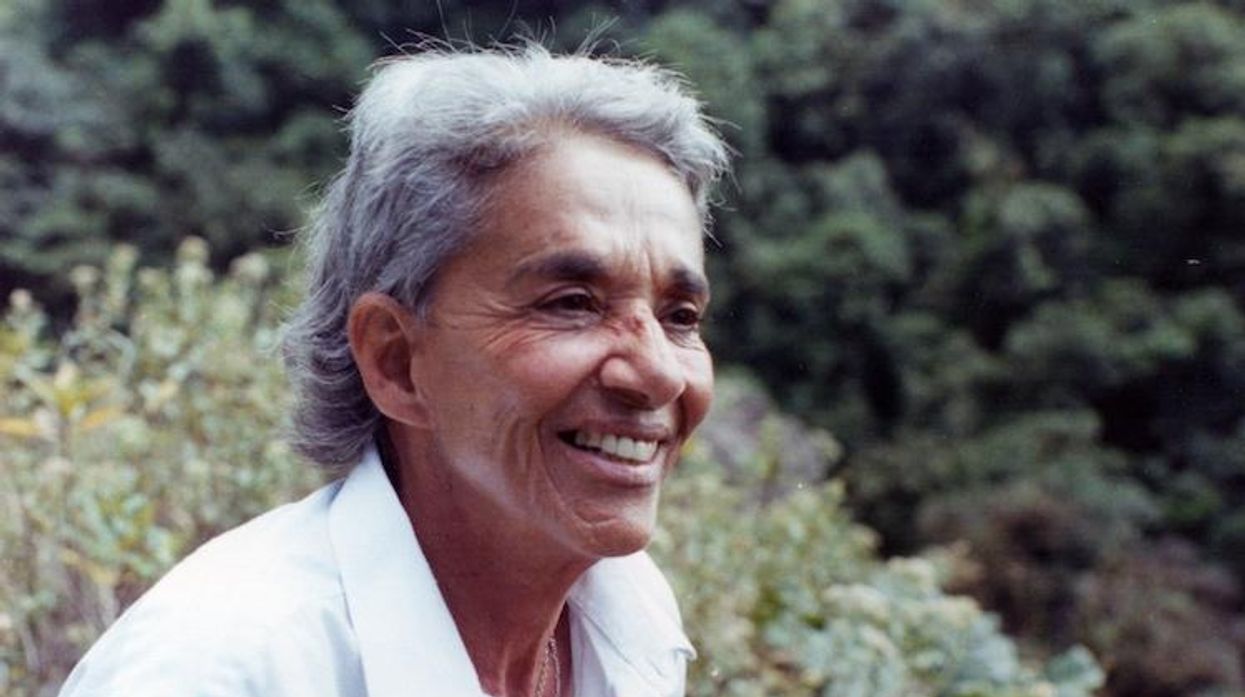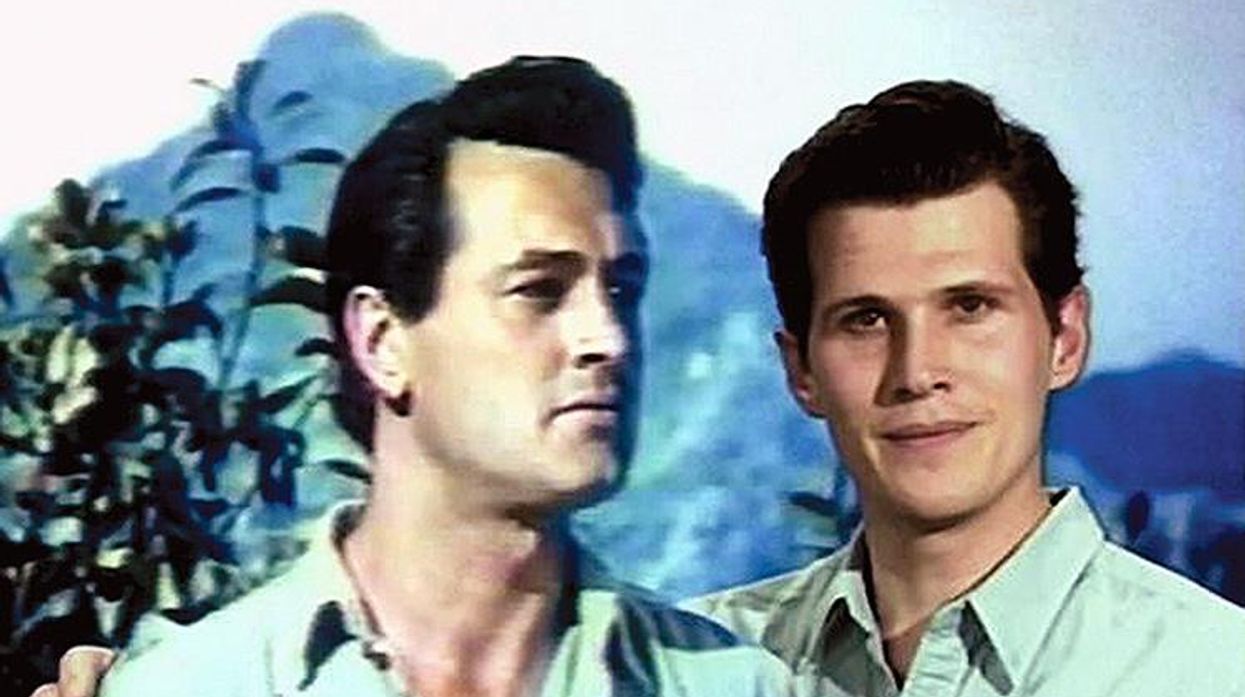The 1986 film noir Mona Lisa was a major step forward in the big screen recognizing queer humanity. It's a crime story and a love story set in the underbelly of London: an illicit world of prostitution, drugs, strip clubs, and porn shops -- the disreputable places frequented by the city's outcasts, including its sexual outlaws.
But the magnetic attraction between ex-con George (Bob Hoskins) and hooker Simone (Cathy Tyson) encompasses sex, longing, alienation, and pain--all the feelings common to gay people trying to understand themselves and their place in society.
Related | 12 of the Best Gay Films You Missed in 2017
Writer-director Neil Jordan tours the same demimonde that the Pet Shop Boys sang about in their sophisticated queer '80s anthems "West End Girls" and "King's Cross." Instead of showing two people as victims of tragic fate, crushed in the system of exploitation by vicious pimps and harassment by authorities, Jordan gives George and Simone the innate goodness of mythological figures. George sees his unlikely interracial relationship with Simone in fairy-tale terms: "The Frog Prince," which he recalls from his own childhood.
A trace of innocence runs through the pair's unsavory encounters after George is hired by a crime boss (Michael Caine) to chauffeur the call girl and gather blackmail information from her rounds servicing high-class clientele. They represent a desperate yet optimistic projection of what outsiders find difficult to achieve in "normal" social circumstances. George and Simone transgress the separation between races, genders, and class; they're an odd couple but an ideal couple, because they see themselves in each other. However, Simone offers a bold new mainstream archetype: a lesbian heroine pining for a lost love and her chivalrous knight.
Hoskins's short tough guy uses violence to veil insecurities just as Simone's hauteur is a guise for the abuse she's endured from men. They update the usual class-conscious British drama by exposing the effects of the Thatcher-era social changes on working-class and immigrant life--but without preaching. Simone's and George's camaraderie anticipates the intimacy that made macho men cry in Queer Eye for the Straight Guy. Simone gives George the affection he's missed all his life; by risking safety to find the woman Simone loves, he returns the favor. This relationship illuminates how gay and straight love are just flip sides of the passion that humans share.
Mona Lisa also honors the gay tradition through Jordan's playful title metaphor. The night world he explores is scored to an evocative pop music soundtrack -- not the Pets, The Smiths, or Erasure, but music from the past, specifically Nat King Cole's 1950 recording "Mona Lisa." This song, as used in the film, transcends camp. It elevates the nightclub singer's proverbial musings on impossible romance so that any viewer already familiar with the song as a heterosexual standard is persuaded to find richer meaning in it. Simone is more than a "mystic" object as, like the song's lyrics go, "men have named" her -- she possesses more than "Mona Lisa strangeness," a homophobic notion of a sexually distant enigma that confines queer women.
Obviously, the film's title also refers to Leonardo da Vinci's portrait of a Renaissance noblewoman. Often called the world's most famous painting, it is also rumored to be an impish self-portrait of Da Vinci, which makes it a cross-gender art-history tease.
Jordan, being a modernist filmmaker, supports this trick as part of his own artistry. Through George's heartbroken acceptance of Simone's love for Cathy (Kate Hardie), Jordan proves himself one of today's most queer-friendly filmmakers. From the adaptation of Interview With the Vampire to his masterpieces The Crying Game and Breakfast on Pluto, Jordan's movies are the epitome of queer-consciousness. He breaks through to universal understanding.







